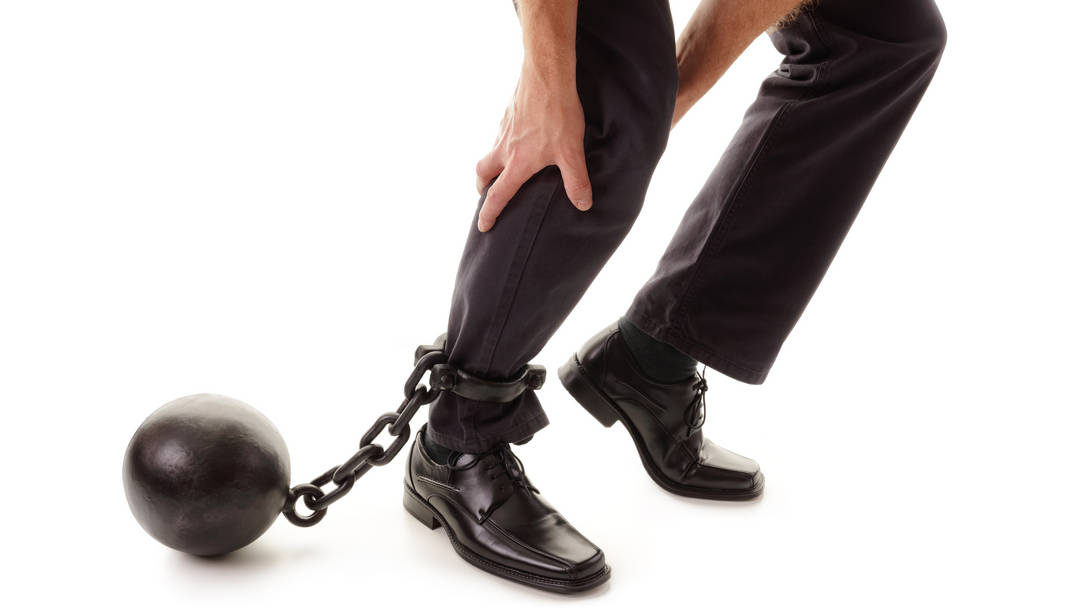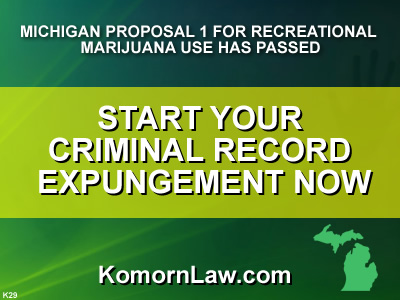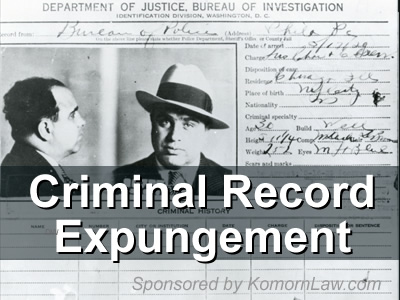
Jan 3, 2020 | Blog, News, Your Rights
You Won’t Lose Your Gun Just For Smoking Recreational Marijuana – In Illinois. 11,000 marijuana conviction expungements on 2020 new years day – In Illinois. One database fills while another “empties”.
Rumors that Illinois gun owners will lose their firearms if they use cannabis under the state’s new legalization mandate are false.
That’s according to multiple authorities after major news outlets published stories claiming gun owners who purchase adult-use cannabis in Illinois would be placed into a database banning them from buying firearms.
The Illinois State Police said Dec. 31 it will not revoke Firearm Owner Identification Cards based solely on someone’s marijuana usage.
Illinois State Rifle Association lobbyist Ed Sullivan said cannabis dispensaries cannot share identifying information with law enforcement agencies unless the customer authorizes it.
But Sullivan notes the federal government still considers marijuana a Schedule I narcotic.
He said this allows the federal Bureau of Alcohol, Tobacco, and Firearms (ATF) to obtain the records of medical cannabis users and potentially restrict their ability to buy guns from Federal Firearms License (FFL) dealers.
“If you intend to use cannabis and own a firearm taking the recreational cannabis route has less potential, detrimental effects on your 2nd Amendment rights than the medical cannabis route,” Sullivan said.
What about Michigan… Is anybody out there? Hello?…………………..What about Michigan?
Read the Rest of the Story Here
Recent Posts

Jul 16, 2019 | Blog
It was Nov 6th 2018… a date many will never forget…a date many never perceived marijuana would become legal in their lifetime… So many friends disappeared into the legal system, so many lives and families ruined…and so much potential suppressed.
The legal system made its money and had its glory days and surely they will find new ways to do it, but at this time…
A new bill, introduced in the Michigan legislature could possibly expunge criminal records of those convicted of possession or use of marijuana offenses.
Introduced
by Sen. Jeff Irwin, a Democrat from Ann Arbor, would clear the criminal records
for over 200,000 people without requiring them to apply to the court that
sentenced them.
“Automatic expungement for all of our
lowest-level cannabis offenders allows people to move on with their lives and
making it automatic is essential because many people can’t afford an attorney,
or the legal fees associated with an application,” Irwin said in a release.
“Cannabis is now legal in Michigan and petty offenses in the past should be no
barrier to getting back to work or school.”
No thought is needed…Approval should be automatic…but automatic with the legal system leaves too much room for error. One should hire an attorney…to make sure there are no errors.
According
to Irwin only 6 percent of people eligible for expungement apply because of the
process.
The
bill could also extend to people who were charged with growing or possession
with intent to distribute charges.
The bill will provide an opportunity for people to apply to a judge to expunge their records.
“This
is the next step in ending the unsuccessful prohibition of marijuana that
incarcerated and punished Michigan residents unfairly for decades,” Irwin added
in a release. “After last year’s mandate from voters, I am hopeful that a
majority of legislators will vote to give Michigan residents back the
opportunities that were unjustly taken from them.”
Michigan State Sen. Jeff Irwin, D-18th District has appeared on the Planet Green Trees radio show pre and post legalization and has openly discussed the topic of Cannabis. Irwin was a featured guest on the shows 420th episode along with John Sinclair, Adam L Brook (Hash Bash Organizer) many more guests.
Attorney Michael Komorn stated “Our firm has been fighting for this for many many years. We have fought in the front line trenches for our clients and have many victories. This is just one of the fronts we have been focused on”.
If you are looking to expunge your marijuana criminal record and make sure it is done correctly or maybe you have some other record you would like expunged. Don’t let the system tell you they “automatically” expunged it. You know how the system works you’ve been there…done that. Contact our office at 248-357-2550 for a free case evaluation
Recent Posts
[kl_posts posts_per_page=”10″ order=”desc”]
The Sheeple Can Have A Win…

Nov 7, 2018 | Blog, Legalization, News, Record Expungement
Gov.-elect Gretchen Whitmer will pursue executive action or legislation to free inmates and expunge criminal records for those convicted of marijuana crimes that will become legal under the state’s pending recreational marijuana law, she indicated Wednesday.
Have a Marijuana Related Criminal Record?
Get rid of it – Start the expungement process now !
Contact Komorn Law 800-656-3557.
“I think that the people of Michigan have said that for conduct that would now be legal, no one should bear a lifelong record for that conduct,” Whitmer said in her first press conference since winning election over Republican Bill Schuette on Tuesday night.
Voters approved Proposal 1 to legalize adult marijuana possession and set up a system to license businesses.
Read the rest of the story here in the Detroit News
Komorn Law has represented numerous clients through the legal chaos of starting up a business in the Michigan Medical Marihuana Industry as well as consulting and legal representation for Medical Maruhuana Patients and Caregivers.
If you or someone you know has been arrested as a result of Medical Marijuana, DUI, Drugs, Forfeiture, Criminal Enterprise or any other criminal charges please contact our office and ensure you’re defended by an experienced lawyer.
Attorney Michael Komorn is recognized as an expert on the Michigan Medical Marihuana Act. He is the President of the Michigan Medical Marijuana Association (MMMA), a nonprofit patient advocacy group which advocates for the rights of medical marijuana patients and their caregivers.
Contact us for a free no-obligation case evaluation 800-656-3557.
Follow Komorn Law
This page is for informational purposes only. Laws, regulations and the world change routinely, therefore we insist you consult an attorney for the most current legal information.

Nov 7, 2018 | Blog, Legalization, News, Record Expungement
Michigan Voters Say Yes to Proposal 1 – Record Expungements Next?
Keep the momentum going and push for legislation to allow expungements for people with marijuana related criminal records.
When will marijuana be legal?
Michigan voters on Tuesday November 6, 2018 approved Proposal 1 to legalize recreational marijuana. 10 days after the election results are certified, which should be by early December. Adults will no longer be arrested or have their belongings taken for simple possession and use of marijuana.
Have a Marijuana Related Criminal Record?
Get rid of it – Start the expungement process now !
Contact Komorn Law 800-656-3557.
What about people who have past marijuana related convictions?
There is a bill pending in the Legislature to require judges to consider expunging the records of people convicted of many misdemeanor marijuana offenses that will no longer be crimes under the marijuana legalization.
The new governor Gretchen Whitmer — also could consider pardoning some criminal offenders. She has said she would favor some sort of expungement for low-level marijuana offenses.
In other states where legalization has passed, California, Colorado, Maryland, New Hampshire and Oregon have taken steps to make it easier for people to get their convictions sealed or expunged.
Komorn Law has represented numerous clients through the legal chaos of starting up a business in the Michigan Medical Marihuana Industry as well as consulting and legal representation for Medical Maruhuana Patients and Caregivers.
If you or someone you know has been arrested as a result of Medical Marijuana, DUI, Drugs, Forfeiture, Criminal Enterprise or any other criminal charges please contact our office and ensure you’re defended by an experienced lawyer.
Attorney Michael Komorn is recognized as an expert on the Michigan Medical Marihuana Act. He is the President of the Michigan Medical Marijuana Association (MMMA), a nonprofit patient advocacy group which advocates for the rights of medical marijuana patients and their caregivers.
Contact us for a free no-obligation case evaluation 800-656-3557.
Follow Komorn Law
This page is for informational purposes only. Laws, regulations and the world change routinely, therefore we insist you consult an attorney for the most current legal information.

Aug 8, 2018 | Blog, Komorn Law Blog, Services
Do you have a criminal record?
Do you want to keep that criminal record? The time to get it expunged is now. The laws and the requirements have changed making it easier to remove that debacle from your life that you may or may not have done (but plead to it anyway). Get your future back in order and feel confident about filling out job applications, social activities and so much more.
Komorn Law can help you get rid of that criminal record
Call us us for a free no-obligation case evaluation 800-656-3557.
Explanation of Recent Changes to the Expungement Statute, MCL 780.621 et seq., amended by 2014 PA 463(eff. Jan 12, 2015)
1.16 The Former Criminal Expungement Rule.
The eligibility rules before 2011 were (1) that the offender had to have only one conviction on his or her record, (2) that the conviction was for an eligible offense, and (3) that the petition could not be filed until five years after the imposition of sentence or completion of incarceration, whichever was later. Ineligible offenses were those with a maximum penalty of life and attempts to commit those crimes, certain sex crimes and attempts to commit those crimes, and traffic offenses.
2011 Criminal Expungement Rule Change.
In June 2011, the legislature expanded the list of eligible offenders but narrowed the list of eligible offenses. An eligible offender included an individual with a single conviction on his or her record and also an individual who had one felony conviction and not more than two “minor offense” convictions. “Minor offense” was defined as an offense committed before the offender’s 21st birthday and for which the maximum penalty was not more than 90 days and a fine of not more than $1,000. The list of ineligible offenses was expanded to include child sexually abusive activity, using the Internet or computer to commit a crime, and attempts to commit those crimes. 2011 PA 64 (eff. June 23, 2011).
2015 Criminal Expungement Rule Change.
Once again, the legislature expanded the list of eligible offenders but narrowed the list of eligible offenses. The legislature also changed the timing rules and expanded the definition of “misdemeanor” and “felony” conviction to include deferred and diverted matters.
Practical Implications
1.17 Eligible Offender. As of January 12, 2015, an eligible offender includes (1) an individual with a single conviction, (2) an individual with one felony conviction and two misdemeanor convictions, or (3) an individual with no felony convictions and two misdemeanor convictions. In the second scenario, the offender may petition to expunge the felony conviction alone. In the third scenario, the individual may petition to expunge one or both misdemeanor convictions. MCL 780.621(1)(a)–(b), .624.
Eligible Offenses. An individual may not petition for the expungement of a felony conviction for which the maximum penalty is life imprisonment or attempts to commit those crimes, certain sex crimes and attempts to commit those crimes (including child sexually abusive activity; second degree child abuse; CSC first, second, third, and fourth degree; and assault with intent to commit CSC), and traffic offenses including drunk driving. The list also includes human trafficking convictions and a felony domestic violence conviction if the offender has a prior misdemeanor domestic violence conviction. MCL 780.621(3).
CSC Fourth Degree. If the offender was convicted of CSC fourth degree before January 12, 2015, the individual may petition to expunge this conviction if the individual has no more than two “minor offenses” on his or her record (see the definition of “minor offense” above). There is no relief for a CSC fourth degree conviction entered after January 12, 2015. The statute is unclear about what happens for a CSC fourth degree conviction entered on January 12, 2015. MCL 780.621(1)(c).
Misdemeanor Conviction. This term is now defined to include misdemeanor offenses under a penal law of this state, another state, an Indian tribe, the law of the United States, a local ordinance, etc. It also includes misdemeanor and felony matters deferred or dismissed under certain liquor code provisions, drug court diversions, veterans court diversions, HYTA, MCL 333.7411, domestic violence diversion, parental kidnapping diversion, and certain health care violations. MCL 780.621(2), (16)(f).
Felony Conviction. For purposes of the offense to be set aside, this term applies to Michigan crimes for which the maximum penalty is more than one year or crimes that are designated by law to be a felony. For purposes of determining the offender’s prior record, this term includes convictions from this state, another state, or the United States if the offense is punishable by imprisonment for more than one year or is designated by law to be a felony. MCL 780.621(16)(c).
Five-Year Wait. Previously, the individual was not allowed to file a petition until five years from the date of sentencing or five years from the completion of incarceration, whichever was later. Now, the five-year period runs from the completion of probation; the completion of parole; the completion of a prison sentence if no parole is granted (or is revoked); the completion of a jail sentence if no probation is imposed; or the date of sentencing if there is no incarceration, probation, or parole. MCL 780.621(5).
Renewed Petitions. If the application is denied, it may not be refiled for at least three years unless the court specifies an earlier date in the order denying the application. MCL 780.621(6).
Prostitution Convictions.Effective January 14, 2015, an individual may petition to expunge one or more prostitution convictions under MCL 750.448, .449, and .450, if the individual can prove by a preponderance of the evidence that the crime was committed as a direct result of being a victim of human trafficking (i.e, forced prostitution). There appears to be no limit on the number of prostitution convictions that may be expunged, and there is no time limitation for the filing of the petition (i.e., it may be filed without a five-year wait). MCL 780.621(4), (7), (13), amended by 2014 PA 335 (eff. Jan 14, 2015).
Minor Offense.This term is now relevant only for CSC fourth degree convictions entered before January 12, 2015. “Minor offense” means a misdemeanor or ordinance violation committed before the age of 21 with a maximum penalty not to exceed 90 days and a maximum fine not to exceed $1,000. MCL 780.621(1)(c).
Komorn Law has represented numerous clients through the legal chaos of starting up a business in the Michigan Medical Marihuana Industry, the criminal justice system and criminal record expungement.
If you or someone you know is facing charges as a result of Medical Marijuana, DUI, Drugs, Forfeiture, Criminal Enterprise, etc. Please contact our office and ensure you’re defended by an experienced lawyer in the evolving laws.
Lead attorney Michael Komorn is recognized as an expert on the Michigan Medical Marihuana Act. He is the President of the Michigan Medical Marijuana Association (MMMA), a nonprofit patient advocacy group which advocates for the rights of medical marijuana patients and their caregivers.
Contact us for a free no-obligation case evaluation
800-656-3557.
Follow Komorn Law





